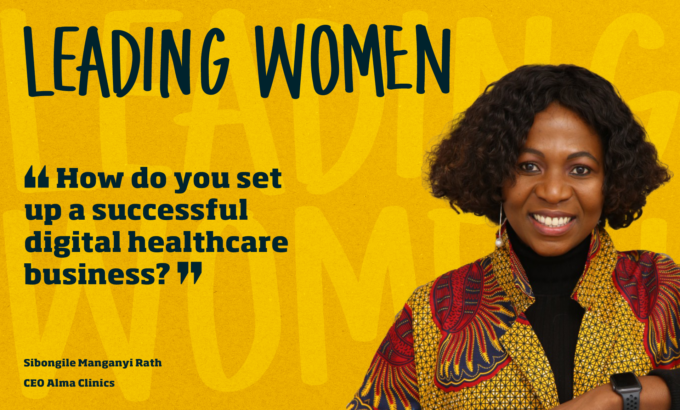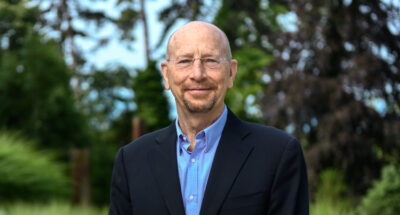
“We were so scared of our IPO”: Leaders Unplugged with former On-CEO Marc Maurer
Marc Maurer shares how ON grew from startup to IPO by defying hype, focusing on purpose, and leading with humility in this candid Leaders Unplugged episode....

by Sibongile Manganyi Rath Published August 14, 2023 in Leadership • 5 min read
I’ve always been passionate about sectors that are fundamental to basic human needs: healthcare, education, and affordable housing.
Doing my EMBA allowed me to reassess my approach to these three sectors and to look at them from a strategic point of view. All three sectors looked ideal, but each appeared to be asset heavy.
My work had always been B2B – I had worked in infrastructure and real estate before – and I wanted to do something that was B2C – more focused on the consumer – in South Africa. I didn’t want to go into the market and have to raise money to build a private school.
I kept coming back to healthcare.
I have often called healthcare the sector in which even the devil needs to invest because, like food, its existence is non-negotiable. It’s fascinating precisely because it’s essential for the long-term development of our economies and society.
On a practical level, what made a healthcare concept attractive to me was that it was comparatively quick to bring to market. While all three sectors understandably have regulatory compliance issues, with healthcare I realized that if I was going to push ahead with a digital as opposed to a traditional bricks-and-mortar offering, I would not be weighed down with a need for significant CapEx investment.

“I’ve always been passionate about sectors that are fundamental to basic human needs: healthcare, education, and affordable housing. ”- Sibongile Manganyi, co-founded Alma Clinics
The question then became how to use technology to support the nurses. The biggest gap that we identified was clinical knowledge. Within our community, we have an army of nurses but they can have difficulties diagnosing an illness properly, especially chronic conditions and the complications that go along with them. They need a specialist.
The solution we developed was a digital healthcare platform called Abeocare that digitalized healthcare processes and engagement practices. Once this was up and running, we established the nurse-led Alma Clinics.
There are now five Alma Clinics in South Africa – three in Soweto, one in Pimville, and one in Katlehong.
Here are five lessons I have learned about setting up a digitally focused healthcare business.
Healthcare can be an expensive business because you need buildings in which to see patients, and rents can be high if you don’t own a building. In addition, medical professionals’ salaries and the cost of medications account for large chunks of your operating expenses. To keep costs low, we focus on technology and hire nurses who have some experience but are young enough and open enough to effectively work with the technology we have developed.
I wish someone had taken me through the lessons of how ownership works when you build digital assets. I have a brick-and-mortar business background and understand the risks that exist there. But if you don’t have a tech background, you need to ask the question of who owns the intellectual property because it is often not documented properly. For us, the so-called title deeds remained with the developers. Until they held me to ransom for payment, it had never occurred to me.
When we think about low-income people, we rarely think of convenience. We think they just need affordable services or products. My daughter could not comprehend that when I was a child, I had to walk up to five kilometers to see a doctor. My goal in creating Alma Clinics was to make sure they were located closer to where people live and work. We decided to take healthcare into the consumer market and go to the shopping centers. To do that we signed a deal with Shoprite, South Africa’s largest retailer, to establish our clinics there.

We’ve cut the cost of healthcare by 60%, which means that people can make immediate choices about their healthcare on the spot without necessarily having to check their budget. The way we do that is to take a roughly 150 square meter space next to a supermarket which we convert into what is effectively a day clinic. We want to target non-communicable diseases and cater for people before they get sick. The way to do that is to catch them where they spend most of their time when they are not at work – in other words, shopping.
Many of the designers for digital solutions come from sometimes very academic backgrounds. But with digital solutions, if you want them to be successful, you need a huge number of people to use your product. All too many digital products are over-designed in a way that the users find complicated.
When we started out, nurses found that the questions we were asking patients were too detailed and time-consuming. The graphs with which we communicated with nurses were also too complicated. Instead of helping them, we had made their world more complicated, which meant the clinics ended up with a huge backlog of patients. When we addressed this issue, waiting and consultation times were immediately shortened.
Absorbing these lessons has not always been easy, but it has given both the business, and myself, a backbone. Alma Clinics currently looks after around 10,000 patients, all of them in a part of the country that has traditionally been underserved by the medical sector. Given that many parts of the country still lack access to quality healthcare, my immediate ambition over the next four to five years is to expand the clinic’s reach to have 45 clinics, while at the same time growing the digital healthcare business.

Social entrepreneur & Co-founder Alma Clinics
Sibongile Manganyi is an award-winning social entrepreneur based in South Africa. After almost 15 years in real estate and the construction industry, in 2018 she co-founded Alma Clinics, a nurse-led medical clinic that uses technology to increase primary care services to low-income communities in South African townships. She completed IMD’s Foundation for Business Leadership (FBL) program in 2017 and an EMBA in 2018.

July 8, 2025 • by Alyson Meister, Marc Maurer in Leadership
Marc Maurer shares how ON grew from startup to IPO by defying hype, focusing on purpose, and leading with humility in this candid Leaders Unplugged episode....

July 7, 2025 • by Richard Baldwin in Leadership
The mid-year economic outlook: How to read the first two quarters of Trump...

July 4, 2025 • by Arturo Pasquel in Leadership
Susanne Hundsbæk-Pedersen, Global Head of Pharma Technical Operations at Roche, shares how she has navigated the various pivots in her career, and the importance of curiosity, optimism and energy. ...

July 3, 2025 • by Eric Quintane in Leadership
Entrepreneurial talent who work with other teams often run into trouble with their managers. Here are ways to get the most out of your ‘boundary spanners’...
 Audio available
Audio availableExplore first person business intelligence from top minds curated for a global executive audience